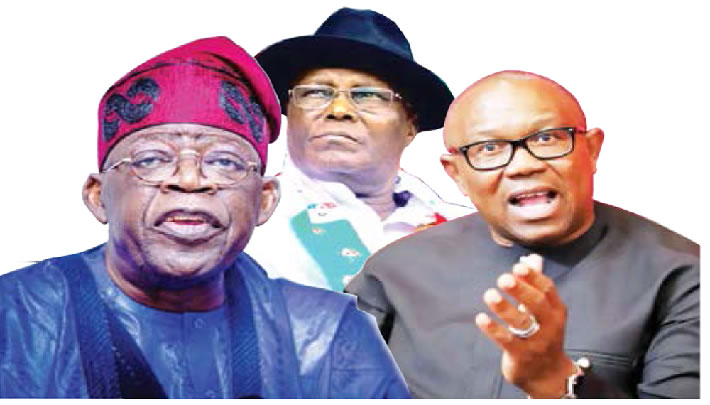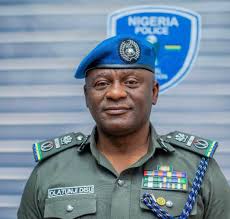Voice Air Media
THE Presidential Election Petition Tribunal PEPC has confirmed Wednesday, September 6, as the definite date for judgment in the three petitions challenging the declaration of Bola Tinubu as the winner of the 2023 presidential election.
The Nation understands that live broadcast of the proceedings has been approved to promote transparency.
Recall that the Chief Justice of Nigeria (CJN), Justice Olukayode Ariwoola, had in November 2022 sworn in 307 justices to handle the 2023 election petitions while an additional 39 justices were inaugurated on May 25, 2023, totalling 346, and they were expected to deliver judgments before September 16.
By law, the 346 justices sitting on the panels were mandated to hand down their judgments 180 days after the filing of the petitions by the aggrieved candidates.
The judges presiding over the tribunal are:
1. Justice Haruna Tsammani
2. Justice Stephen Adah
3. Justice Monsurat Bolaji-Yusuf
4. Justice Moses Ugo
5. Justice Abba Mohammed
At the tribunal, Chris Uche is leading the legal team of Atiku Abubakar, candidate of the Peoples Democratic Party (PDP).
Wole Olanipekun heads the legal team of Bola Tinubu, the then president-elect and candidate of the All Progressives Congress (APC), and Levi Uzoukwu is the head of team of Peter Obi, candidate of the Labour Party (LP).
Here are key titbits about the tribunal, its activities so far and what to expect;
1. Five political parties including the PDP, LP, Action Peoples Party (APP), Allied Peoples Movement (APM) and the Action Alliance (AA) had lodged separate petitions before the tribunal seeking to annul Tinubu’s victory.
2. Tinubu secured 8,794,726 votes to defeat Atiku Abubakar of the Peoples Democratic Party (PDP) who got 6,984,520, and Peter Obi of the Labour Party (LP) who polled 6,101,533 votes.
3. Shortly after the commencement of the pre-hearing session in May, the APP and AA withdrew their petitions.
4. Among several issues, the petitioners contended that Tinubu and Kashim Shettima, the vice-president, were not eligible to contest the presidential poll.
5. They claimed that the president was indicted in the United States, that his academic certificates submitted to the Independent National Electoral Commission (INEC) were forged, and that Tinubu is a citizen of Guinea.
6. The petitioners also submitted that since Tinubu failed to secure 25 percent of votes cast in the federal capital territory (FCT) he should not have been declared winner of the February 25 election.
7. On August 1, a five-member panel of the tribunal reserved judgment after hearing the final written addresses from counsels to Atiku and Obi.
8. Although the decision of the court is not final, as a displeased party can still appeal to the Supreme Court, many feel that the decision of the jurists would definitely set the tone of the final decision of the Supreme Court, either in concurrence or disagreement.
For many pundits, the election petition tribunal has three possible outcomes.
The first outcome is for the tribunal to uphold the election outcome as originally announced by INEC, the second outcome is for the election to be nullified and a fresh election ordered, while the third option is for the election result to be rejected, the initially declared winner removed and the petitioner installed as the actual winner of the election.
If the tribunal gets to determine that the election is invalid and a fresh exercise is ordered, a new exercise must be conducted by INEC not later than three months from the judgement.
If either of the petitioners or the respondents are unsatisfied with the tribunal’s judgement, they can further take their grievances to the Supreme Court.
Any judgement handed out by the apex court is final. Petitions against the outcome of a presidential election are filed at the Court of Appeal. (The Nation)




